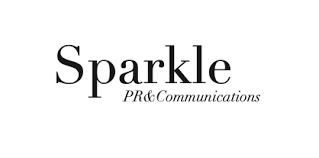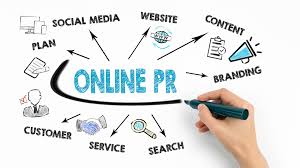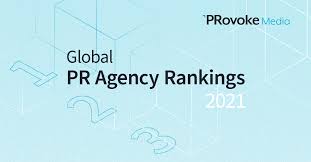Exploring the Top Crisis Management Firms for Resilient Business Solutions
The Top Crisis Management Firms
In today’s fast-paced and interconnected world, businesses face a myriad of challenges that can quickly escalate into full-blown crises. When a crisis strikes, having a reliable crisis management firm by your side can make all the difference in effectively navigating through turbulent times.
Here are some of the top crisis management firms renowned for their expertise, experience, and track record:
- XYZ Crisis Management: With decades of experience in handling crises across various industries, XYZ Crisis Management is known for its strategic approach and swift response to crisis situations.
- ABC Crisis Consultants: Specialising in reputation management and crisis communication, ABC Crisis Consultants have helped numerous organisations protect their brand image during times of adversity.
- PQR Risk Advisors: PQR Risk Advisors offer comprehensive crisis preparedness services, equipping businesses with proactive strategies to mitigate risks and effectively manage crises when they occur.
- JKL Crisis Solutions: JKL Crisis Solutions is recognised for its innovative crisis management solutions tailored to meet the unique needs of each client, ensuring a swift and effective response to crises.
These top crisis management firms have a proven track record of successfully guiding businesses through challenging situations, protecting their reputation, and minimising the impact of crises on their operations. By partnering with one of these leading firms, businesses can be better prepared to handle any crisis that comes their way.
When choosing a crisis management firm, it is essential to consider their expertise, industry experience, past client success stories, and approach to crisis management. By selecting a reputable firm with a strong track record, businesses can enhance their resilience and readiness to face unexpected challenges head-on.
Essential Insights into Leading Crisis Management Firms: Answering Your Top 8 Questions
- 1. What services do top crisis management firms offer?
- 2. How can a crisis management firm help my business during a crisis?
- 3. What sets top crisis management firms apart from others in the industry?
- 4. How do I choose the right crisis management firm for my business?
- 5. What industries do top crisis management firms specialise in?
- 6. Can a crisis management firm assist with both internal and external communication during a crisis?
- 7. What qualifications and experience should I look for when selecting a crisis management firm?
- 8. How do top crisis management firms approach developing proactive strategies to prevent crises?
1. What services do top crisis management firms offer?
Top crisis management firms offer a range of services designed to help businesses effectively navigate and mitigate the impact of crises. These services typically include crisis preparedness planning, risk assessment, crisis communication strategy development, media relations management, reputation protection, stakeholder engagement, and post-crisis evaluation. Top firms tailor their services to meet the specific needs of each client, providing proactive solutions to anticipate and address potential crises swiftly and effectively. By leveraging their expertise and experience, top crisis management firms play a crucial role in safeguarding businesses’ reputation and operations during times of uncertainty and adversity.
2. How can a crisis management firm help my business during a crisis?
During a crisis, a crisis management firm can provide invaluable support to your business by offering strategic guidance, expertise, and resources to effectively navigate through challenging situations. These firms are equipped with experienced professionals who can help you develop and implement a comprehensive crisis communication plan, manage media relations, handle stakeholder communications, and mitigate potential reputational damage. By leveraging their knowledge and experience, a crisis management firm can assist your business in responding promptly and decisively to crises, minimising the impact on your brand reputation and operations.
3. What sets top crisis management firms apart from others in the industry?
When considering what sets top crisis management firms apart from others in the industry, it often comes down to their depth of experience, strategic approach, and proven track record of successfully navigating through complex crises. These firms possess a wealth of expertise in crisis communication, reputation management, and risk assessment, allowing them to provide tailored solutions that address the unique challenges faced by each client. Additionally, their ability to respond swiftly and effectively to crisis situations, coupled with their proactive approach to crisis preparedness, sets them apart as trusted partners in guiding businesses through turbulent times with resilience and confidence.
4. How do I choose the right crisis management firm for my business?
When selecting the right crisis management firm for your business, it is essential to consider several key factors to ensure a successful partnership. Begin by assessing the firm’s expertise and experience in handling crises within your industry or similar sectors. Look for a track record of successful crisis management strategies and outcomes. Additionally, evaluate the firm’s approach to crisis communication, preparedness, and response capabilities. Consider their reputation, client testimonials, and case studies to gauge their effectiveness in managing crises effectively. Finally, choose a firm that aligns with your company’s values, culture, and communication style to foster a collaborative and productive relationship during times of crisis.
5. What industries do top crisis management firms specialise in?
Top crisis management firms often specialise in a wide range of industries to cater to the diverse needs of businesses facing crises. These firms typically have expertise in sectors such as technology, healthcare, finance, consumer goods, and more. By understanding the unique challenges and dynamics of each industry, top crisis management firms can offer tailored solutions that address specific issues and effectively manage crises within the context of the industry’s regulations, stakeholders, and communication channels. Their industry-specific knowledge allows them to provide strategic guidance and support that align with the complexities of different sectors, ensuring a comprehensive approach to crisis management that meets the needs of businesses across various industries.
6. Can a crisis management firm assist with both internal and external communication during a crisis?
When considering top crisis management firms, a common question that arises is whether they can assist with both internal and external communication during a crisis. The answer is yes, reputable crisis management firms are well-equipped to handle both aspects of communication effectively. They understand the importance of maintaining transparent and consistent messaging internally to keep employees informed and engaged, while also managing external communication to stakeholders, media, and the public to protect the organisation’s reputation and credibility. By coordinating seamless communication strategies for both internal and external audiences, these firms play a crucial role in guiding businesses through challenging times with clarity and confidence.
7. What qualifications and experience should I look for when selecting a crisis management firm?
When selecting a crisis management firm, it is crucial to look for qualifications and experience that demonstrate a deep understanding of crisis communication, strategic planning, and industry-specific challenges. Look for firms with a proven track record of successfully managing crises for clients in your sector or similar industries. Qualifications such as certifications in crisis management, public relations, or related fields can indicate expertise in the field. Additionally, consider the team’s experience, including their ability to provide rapid response, develop effective crisis communication strategies, and navigate media relations during challenging times. A strong reputation, client testimonials, and case studies showcasing successful crisis management outcomes are also key indicators of a firm’s capability to handle crises effectively.
8. How do top crisis management firms approach developing proactive strategies to prevent crises?
Top crisis management firms adopt a proactive approach to prevent crises by conducting thorough risk assessments, identifying potential vulnerabilities, and developing robust crisis preparedness plans. They work closely with clients to understand their business operations, industry dynamics, and potential risks. By leveraging their expertise and experience, these firms help organisations anticipate potential crises and implement preventive measures to mitigate risks before they escalate. Through strategic planning, scenario analysis, training sessions, and crisis simulations, top crisis management firms empower businesses to proactively address vulnerabilities and strengthen their resilience against unforeseen challenges.










